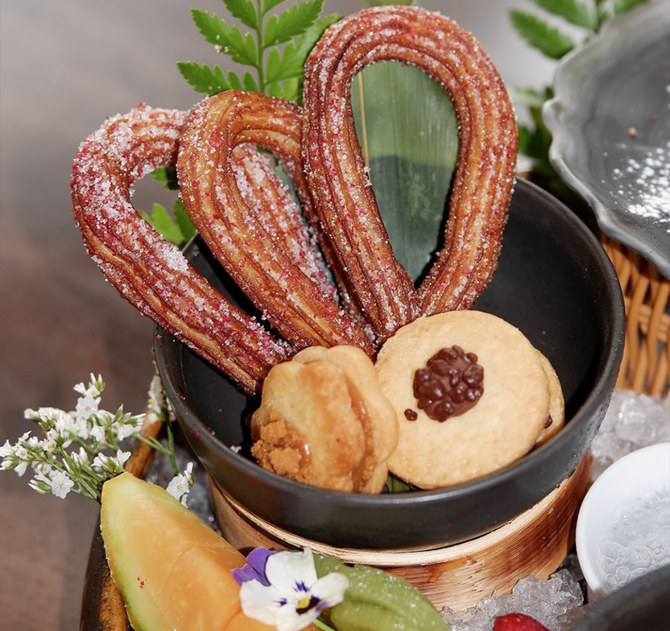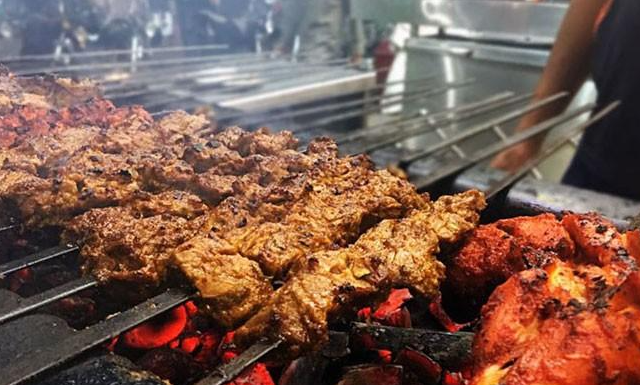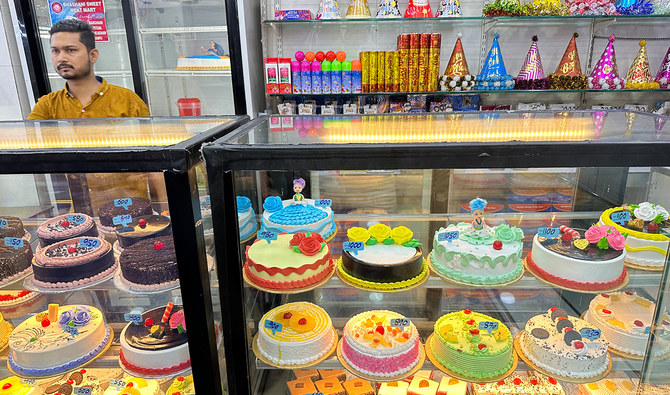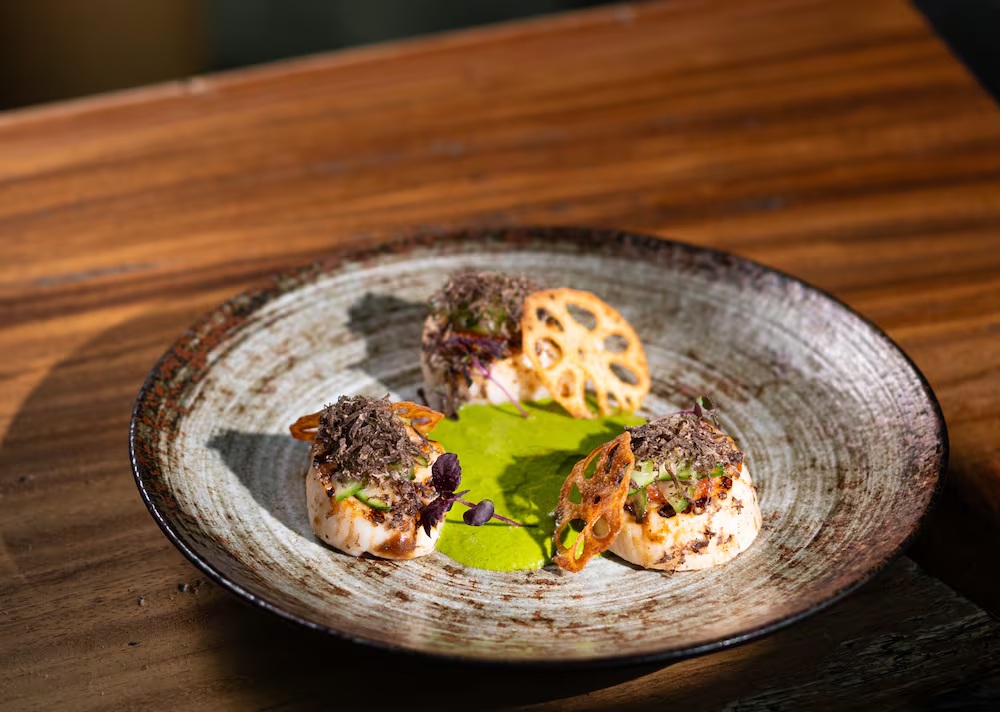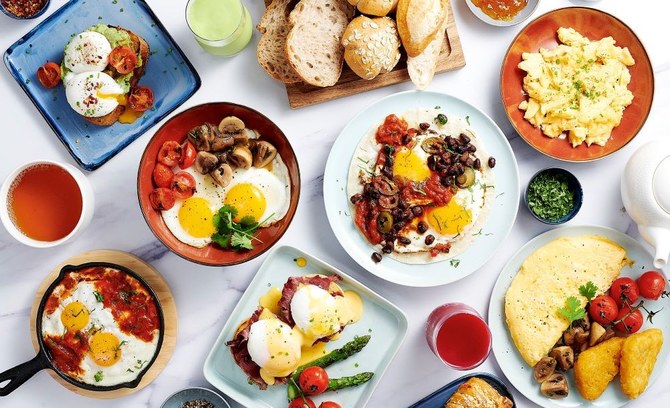(CNN): In an age when Chinese food is no longer foreign to international audiences, with diners willing to embrace its many regional cuisines, there’s one culinary area that has yet to receive much attention globally — baking.
Kristina Cho’s recently published “Mooncakes and Milk Bread: Sweet & Savoury Recipes Inspired by Chinese Bakeries” aims to change this by offering a rare collection of recipes inspired by the Chinese American bakeries and cafes she visited as a child.
An architecture graduate and interior designer, Cho turned to baking a few years ago when she couldn’t find satisfaction at work, eventually starting her blog, Eat Cho Food.
Her grandparents moved to Cleveland from Hong Kong in the late 1960s, and some of Cho’s favorite childhood memories include trips to Chinese bakeries around the US, where she would devour egg tarts and hot dog flower buns.
“I rarely saw recipes for my Chinese bakery favorites in books or on the internet. I felt that there was a void in the baking cookbook landscape when it came to the baked goods I enjoyed from my childhood,” Cho tells CNN Travel.
“I soon started to share my own recipes for red bean swirl buns and hot dog flower buns. The hot dog flower buns received an overwhelmingly positive and also personal reaction from my followers and readers. I think because they were just so nostalgic… and almost everyone loves another reason to eat hot dogs.”

The response inspired Cho to write a cookbook featuring the baked goods traditionally found in Chinese American bakeries.
“Chinese bakeries originated in Hong Kong, which was heavily influenced by British culture, so that is why you find a lot of custards, sponge cakes and flaky pastries at Chinese bakeries,” says Cho.
“Bakers over the years have adapted the recipes and flavors to appeal to a more Asian palette that appreciated sweets that are not too sweet.”
In addition to recipes, Cho’s book also includes stories about iconic Chinese American bakeries around America, such as Fay Da Bakery in New York City, Eastern Bakery in San Francisco and Phoenix Bakery in Los Angeles.
“Chinese baking is a facet of Chinese and Asian culture that hasn’t really been talked about and I feel grateful to have the opportunity to explore it,” she explains.
“Chinese bakeries are more than just a place to pick up your favorite bun or birthday sponge cake. For a lot of people, these bakeries are community hubs that connect them back to their home and heritage.”
Mother of All: Milk Bread
When asked to highlight what makes Chinese baked goods unique, Cho singles out milk bread, or, as she calls it, the “Mother of All.”
“The first thing I think about is the incredibly soft texture of the baked buns,” she says.

“The majority of the baked buns at Chinese bakeries use a milk bread dough, which is a bread dough enriched with butter, eggs and milk. The toppings and fillings for each bun are literally endless. Pork floss, green onions, tuna salad, matcha custard, mango jam and red bean paste all make an appearance.
“The bread is quite similar to brioche or challah but it’s really how the bakers twist and incorporate these flavors and ingredients into the bread which make Chinese bakery buns uniquely their own.”
Cho’s book focuses mainly on Cantonese-style baked goods like cocktail buns and egg tarts but also covers recipes from other regions such as savory spring onion pancakes. Even matcha and hojicha cream puffs are featured.
“I also wanted to show that there is so much diversity and cultural influences in Chinese baking,” says the author.
“Depending on the bakery and what part of China the owners or bakers are from, you might find more flatbreads or steamed buns stuffed with savory fillings rather than sponge cakes adorned with shiny fruit.”
Defining mooncakes
The mooncake, a symbol of the Mid-Autumn Festival, is the other classic treat featured in Cho’s book title. It serves as a great example of how Chinese baked goods have evolved and embraced different cultures.
“A lot of people associate the Cantonese style of mooncake with the platonic ideal of a mooncake, but that’s not necessarily true. Every region in China has their own style,” explains Cho.
“Some have a flaky crust made from laminating dough and fat and some are filled with meat rather than a sweet paste.”
These days, mooncakes are stuffed with everything from ice cream to custard, with some bold chefs even offering Mooncake Wellington, complete with beef tenderloin.
For Cho, a mooncake shouldn’t be defined by its shape and form, but by the way it is eaten.
“I love all mooncakes because they represent a moment that allows us to focus on togetherness and looking positively towards the future. Mooncakes are typically round to symbolize the moon and togetherness,” she says.
“So for me, a mooncake can be in any shape, but is filled with a delicious and decadent filling, and made to be shared with loved ones.” Her favorite is any mooncake with a salted egg yolk.
“The salted yolk balances out the sweetness from the paste and I love a sweet and salty dessert,” says Cho.
Ultimately, Cho says she hopes the book will expand people’s definition of baking, even if they didn’t grow up going to Chinese bakeries.
“I hope that these recipes and stories inspire them to bake with new flavors and seek out their closest baked bun,” she says.
“And for the readers that did grow up going to these bakeries and cafes, I hope they feel a sense of nostalgia and comfort throughout the pages. I keep saying this is the cookbook I wish I had when I was growing up.”




